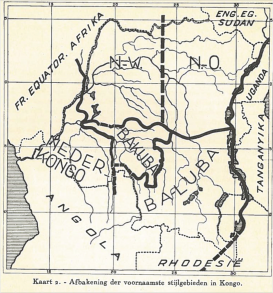This project consists of two parts. First, it investigates how anthropological and art historical knowledge was translated into a plan for the organization of a cultural economy that, in the eyes of the Belgians, would safeguard the authenticity of cultural production in the colony and help protect the social structure of rural communities. The second part of the project contrasts the planning phase of this cultural economy with its failed enactment. Using a number of case studies, which include the Ateliers Sociaux d’Art Indigène in Tshikapa and a women’s weaving cooperative in Kikombo, I trace how these state-led initiatives were contested, adapted, and used both by the local colonials and by the Congolese involved. This part of the project includes an analysis of the objects produced by the workshops and cooperatives in order to determine how these initiatives shaped local production and patronage systems and affected ideas about style and the process of creation.

